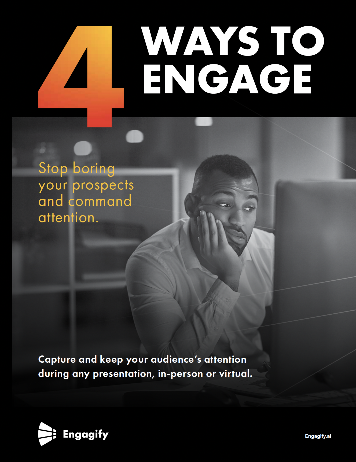As we train companies and sales teams in virtual engagement, one of the issues that keeps coming up and is rearing its ugly head is that of eye contact and eye contact with the camera. Now we know that virtual meetings are not the same as face to face. They kind of mimic the idea of it.
But there are some angles happening. Let me demonstrate,. So if I want to give the person I’m talking to eye contact, intuitively, I wanna look down at their picture on my screen.
Now, they might be doing the same thing. So now we’re both looking down, and obviously, we’re downcast. We’re not really giving that eye contact, and people who don’t give eye contact can come across as shady, can come across as untrustworthy.
So to create engagement to deepen that connection and command attention from that person, we need to keep our eyes on that camera lens. Even though we feel a little bit disconnected because we can’t see them as well. You have to do it out of the corner of your eye, but on their end, they’re going to feel more connected because they’re staring at the screen and you’re staring right back at them.
So when you do this, you’re gonna create more engagement, you’re gonna create more trust, and with more trust, you’re gonna be able to sell faster, sell bigger and close more of the time when you create this eye contact and create virtual engagement.




